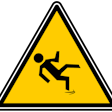
Many might argue that recent events — including coronavirus and societal issues surrounding racial strife — have created significant stress in people’s lives. Stress is always present for most of us. It’s a normal part of management, created by dealing with financial and personnel issues combined with the day-to-day “workplace drama.” Add this to possible strain in our personal lives and other worries, and there are times when it can be overwhelming.
What are some useful ways to deal with this strain and pressure? How do you tackle this as a manager?
Keep a positive attitude
One of the things experts recommend to combat stress is to work on your mental attitude and do everything you can to maintain a positive outlook. As managers, we want to have as much control as we can over events — that’s the typical way many of us are “wired.” But a critical tactic to reduce the “worry factor” is to accept that there are events that you cannot control. Not to say that you shouldn’t worry — just don’t worry about things over which you have no influence. What you control is your reaction, and that of your business, to events, and this is where you should spend your mental and physical energy.
Reflecting on the mantra that “this too shall pass,” is another valuable coping strategy. Not that you should not address challenges and problems, but more the realization that you have faced challenging times in the past, and that collectively we (you, your business and society) will work to overcome the obstacles presented.
Positive habits
Some habits can be associated with negativity. Perhaps you become agitated when you start to think about an issue or person. When this occurs, consultants and psychologists say that this is when and where you should refocus your energy and develop an “empowering habit” that moves your thoughts in a positive direction. Maybe this means going for a walk, talking to a trusted colleague or reading something you enjoy.
Another “habit” to transform is your vocabulary. The words you choose — both in conversation with others and your internal “self-talk” — have a substantial impact on your state of mind. Studies have shown that positive self-talk improves your mental state and helps you regulate your emotions.
Your physical health
These next suggestions can help your body deal with stress.
Exercise regularly. Exercise is a “tried and true” method for dealing with stress. Activities like walking, biking, stretching or moderate aerobics can clear your mind and improve your general health.
Eat balanced, healthy meals. This recommendation is sometimes a challenge. Getting into the habit of eating more fruits and vegetables, and reducing caloric intake is good physically and mentally. When you want a snack, drink plain or flavored water. Hydration is always essential, and it can make you feel full. Stress may cause cravings, which leads to snacking. It is helpful to recognize this behavior pattern. One approach may be to avoid purchasing items that are negative go-tos when stressed. For many, this may be sugars and sweets. Consider substituting something a bit healthier.
Learn and practice relaxation techniques. Focused breathing, meditation, yoga or any other relaxation technique can be helpful here.
Get enough sleep ... both quantity and quality. This is usually a matter of developing new habits that not only allow you to get enough sleep but also to improve the quality of your sleep. Science has learned quite a bit about this topic over the past number of decades. Put away your electronic device (smartphone or tablet) well before you head to bed and take steps to wind down your day to improve your slumber.
Take a mental health day. There are times when you just need to take a break. Taking part or all of a day off just to clear your mind and leave your issues at the office, should be strongly encouraged as a part of your repertoire. Give yourself permission to take this break and try not to feel guilty about it. You will be more productive later by doing so.
Make time for hobbies, interests and relaxation. Hobbies and other interests (traveling, hunting, fishing, ) are all activities that need to be “put on the list” to provide you with ways to relax and de-stress.
Seek out social support. Spending time with others is one of the things that the coronavirus has made challenging. As things start to return to a bit of normalcy, spending time with family and friends is a surefire way to reduce stress (as long as your family relations are positive!).
Don’t rely on alcohol or drugs to reduce stress. This recommendation should go without saying. While a few drinks are ok, both alcohol and drugs can become very problematic if relied on for stress reduction.
Seek treatment with a psychologist or other mental health professional trained in stress management or biofeedback techniques to learn healthy ways of dealing with the stress in your life. Sometimes you just can’t deal with it all yourself.
Fortunately, today’s society is more understanding than in times past relative to seeing a counselor or therapist, but they can indeed be a great asset to dealing with stress and associated mental challenges.
What me worry?
For those of us that grew up in the ‘60s and ‘70s, a prominent character was Alfred E. Neuman of Mad Magazine. His caricature (often on the magazine cover) was a picture of him smiling with the caption – “What Me Worry?” The take-home message is that there are many things to worry about — and many of these same things cause us stress. Perhaps we all need to take Alfred E. Neuman’s advice periodically and not worry so much, but also to figure out how to deal with many of these stressors using appropriate strategies. Hang in there, and keep smilin’! ■
5 Unique Stress-Stoppers from Physicians
- Chew gum – Several studies have shown that chewing gum lowers anxiety and eases stress.
- Go outside – Spending time outdoors is linked to better well-being.
- Smile – Science has shown that smiling uses muscles that cause the body to reduce stress responses and lower your heart rate.
- Sniff some lavender – Studies show a reduction in stress from scents like lavender. If it works, it’s not weird.
- Listen to music. There is no question that music can calm down the mind and body (studies show that it should probably be classical, jazz or other easy listening music). Research has shown that music reduces the stress hormone cortisol.
PERFORMANCE VERSUS LEVEL OF STRESS
The American Institute of Stress provides a unique graph which shows performance versus level of stress. The implication is that performance can rise with your level of stress and that there are several types of stress: eustress or “positive” stress and distress or “negative” stress.
Their website, stress.org, has some valuable information on the physiology of stress and its impact on our bodies.
Another potentially useful website can be found at verywellmind.com. They have a section on self-improvement which contains some helpful ideas and tips.
Dr. John Foltz is Chair, Department of Animal Sciences, The Ohio State University, Columbus, OH, and Dean Emeritus, College of Agricultural and Life Sciences and Professor Emeritus, University of Idaho, Moscow, ID.
Dr. Wilson is Associate Dean, College of Agriculture, Purdue University.















